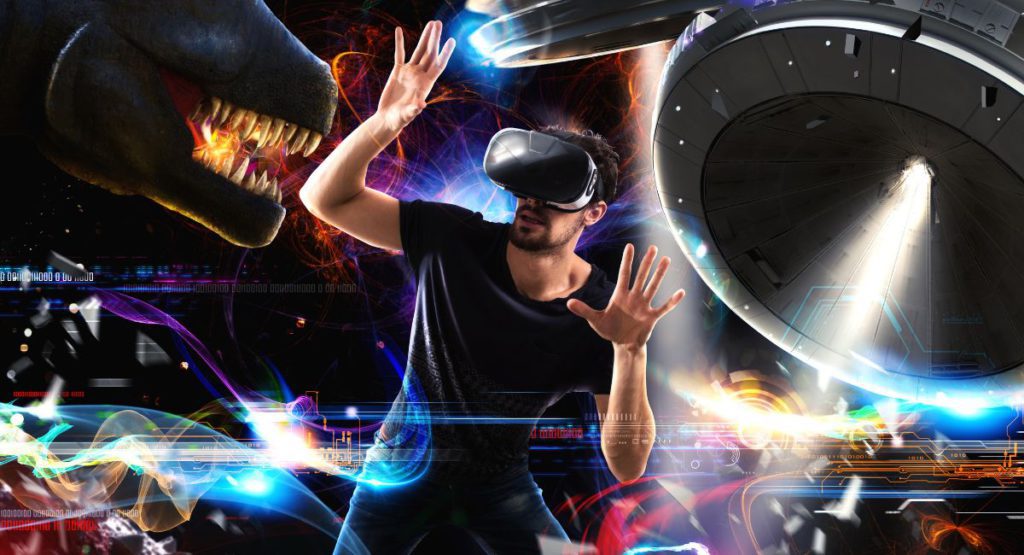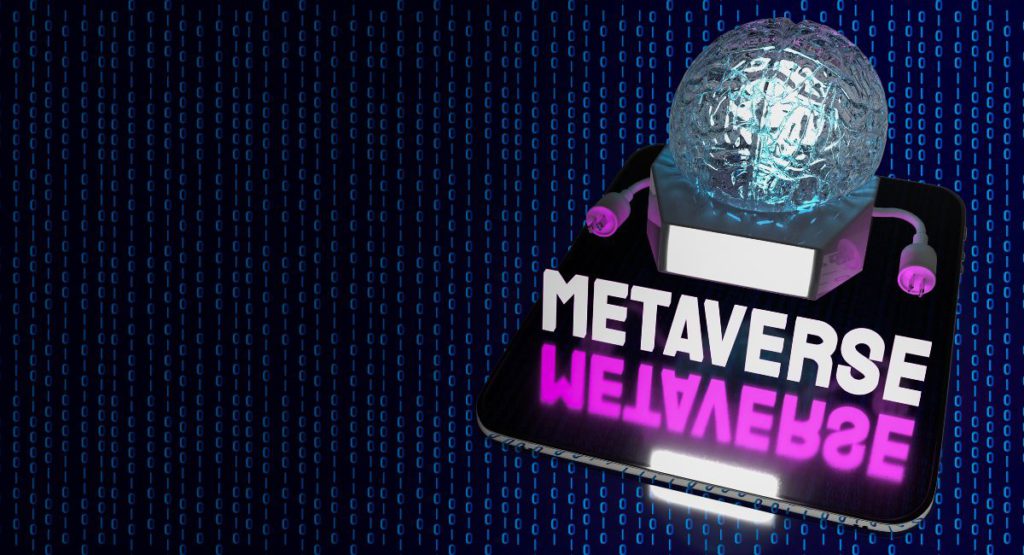Top 10 Ways Metaverse Developers Shape Digital Marketplaces

The concept of the metaverse, a digital realm where users can interact, socialize, work, and play in a shared, immersive environment, has taken center stage in discussions about the future of the internet. As the metaverse gains traction, developers are playing a pivotal role in shaping digital marketplaces within these virtual worlds. These marketplaces are not just spaces for buying and selling virtual assets; they are evolving ecosystems with their own economies. In this article, we will explore the top 10 ways in which metaverse developers are influencing digital marketplaces and their role in shaping virtual economies.
How metaverse developers are influencing digital marketplaces?

1. Creation of Virtual Assets:
Metaverse developers are at the forefront of asset creation. They design and build virtual items, from virtual real estate and clothing to digital art and NFTs (Non-Fungible Tokens). These assets are the lifeblood of digital marketplaces within the metaverse, driving user engagement and economic activity.
2. Smart Contracts and Blockchain Integration:
Developers are integrating blockchain technology into metaverse ecosystems, enabling the use of smart contracts to automate transactions and establish trust. Blockchain integration ensures transparent ownership and provenance of virtual assets, making them more valuable to users.
3. NFT Marketplaces:
NFTs have revolutionized digital ownership. Developers are creating NFT marketplaces where users can buy, sell, and trade unique virtual assets. These marketplaces empower artists and creators by allowing them to monetize their digital content.
4. Virtual Real Estate Development:
In the metaverse, virtual real estate is a hot commodity. Developers are designing and developing virtual worlds and landscapes, creating valuable digital properties that users can buy, develop, and trade.
5. In-Game Economies:
Metaverse developers design games and experiences with their own in-game economies. Virtual currencies, items, and assets circulate within these economies, and users can buy, sell, or trade them. Developers often use economic models to balance supply and demand.
[Web3 Gaming News🗞️]
Krafton, the developer of PUBG, is set to launch Overdare, an NFT-based metaverse game, in the first half of 2024. With 1.3 billion PUBG users, the world of Web3 is about to explode.
— Harry Liu @ Forj (@harry_forj) September 19, 2023
6. Virtual Services and Entertainment:
Developers are crafting virtual service marketplaces where users can access services like virtual concerts, education, consulting, and more. These marketplaces bridge the gap between real-world expertise and virtual engagement.
7. User-Created Content Platforms:
User-generated content is a cornerstone of the metaverse. Developers build platforms that allow users to create, share, and monetize their content, from 3D designs and digital art to virtual experiences.
8. Monetization Tools for Creators:
Developers create monetization tools like microtransactions, subscription models, and tipping mechanisms. These tools empower content creators and artists to earn income within the metaverse.
9. Decentralized Finance (DeFi) Integration:
DeFi is making its way into the metaverse. Developers are exploring DeFi integration, allowing users to access decentralized financial services like lending, borrowing, and yield farming within virtual worlds.
10. Cross-Platform and Interoperability:
Metaverse developers are working on standards for cross-platform compatibility and interoperability. This allows virtual assets and currencies to flow seamlessly between different metaverse environments, enhancing the overall user experience.
Also, read – Top 5 Metaverse Websites To Monitor The Growth Of Metaverse
The Role of Metaverse Developers in Virtual Economies

Metaverse developers are at the forefront of shaping the virtual economies that are flourishing within these immersive digital realms. Their role extends far beyond creating captivating virtual environments; they are the architects of new and vibrant economies where users, creators, and developers interact and exchange value. Here, we delve into the crucial role metaverse developers play in these digital economies:
1. Digital Asset Ownership:
In the metaverse, ownership of digital assets is a foundational concept, and it’s metaverse developers who make it all possible. These assets can include virtual real estate, clothing, digital art, virtual goods, and much more. Developers leverage blockchain technology and NFTs (Non-Fungible Tokens) to ensure that users have true ownership of their digital assets. This ownership empowers users to have complete control over their virtual possessions, allowing them to transfer, trade, sell, or display them as they see fit.
2. Earning Opportunities:
Metaverse developers create environments where users can actively participate and earn within the digital economy. Users have various opportunities to generate income, whether it’s through creating and selling virtual items, providing services, monetizing their content, or even participating in in-game economies. These opportunities are the result of the economic systems and infrastructure designed by developers, which enable users to turn their time and creativity into tangible financial rewards.
3. Virtual Workforces:
In the metaverse, we witness the emergence of virtual workforces. Users can be employed or hire others to perform tasks and services within these digital realms. Developers facilitate the creation of platforms where users can offer their skills and services, similar to freelancing platforms in the real world. This not only introduces income-generating opportunities for users but also fosters a sense of community and collaboration within the metaverse.
4. Decentralization:
Decentralization is a key aspect of many virtual economies within the metaverse. Metaverse developers design systems that are often decentralized, giving users more control over their assets and financial activities. This decentralization is achieved through the use of blockchain technology, where transactions and ownership are secured by a distributed network of nodes rather than centralized entities. It enhances trust and enables users to govern their economic interactions more independently.
5. Cross-Border Transactions:
Virtual economies within the metaverse know no geographical boundaries. Users from around the world can engage in transactions without the constraints of traditional financial systems. Developers create and facilitate these cross-border transactions, enabling users to seamlessly trade virtual assets, services, and currencies across regions. This international accessibility is a significant departure from the limitations of real-world financial systems.
6. Innovation and Experimentation:
Metaverse developers actively encourage innovation and experimentation within virtual economies. Users, creators, and developers collaborate to explore new economic models and services. This innovation often results in the creation of novel monetization strategies, inventive digital goods, and unique services. As a result, the metaverse continuously evolves as a hotbed of economic experimentation, offering users diverse ways to earn and participate in these digital economies.
7. Interconnected Ecosystems:
Metaverse developers are increasingly working on creating interconnected ecosystems. These ecosystems allow assets and currencies to flow seamlessly between different metaverse environments. Users can take their virtual possessions or assets with them as they move between different metaverse platforms. This interconnectedness enables a more cohesive and fluid user experience and further expands the scope of virtual economies.
Conclusion: A New Era of Virtual Economics

In the metaverse, metaverse developers are not just building digital playgrounds; they are shaping entirely new economic landscapes. These virtual economies, characterized by digital asset ownership, earning opportunities, decentralization, cross-border transactions, and innovation, represent a transformative shift in how we interact with digital content and conduct economic activities.
Metaverse developers are the architects and engineers behind these emerging economies, working diligently to create the infrastructure and tools that empower users and creators to participate in these dynamic digital realms. Their work unlocks the full potential of the metaverse as a space where users can not only engage socially and creatively but also actively contribute to and benefit from new and innovative digital economies. The role of metaverse developers in shaping these economies is pivotal, and as the metaverse continues to grow and diversify, their influence will remain central to its ongoing development.
FAQs About Metaverse developers
1. What is the salary of a Metaverse developer? The salary of a Metaverse developer can vary significantly based on factors such as experience, location, and the specific role within Metaverse development. On average, Metaverse developers can expect competitive salaries, often in line with salaries for experienced software engineers and game developers. In some cases, senior Metaverse developers with specialized skills may earn higher salaries.
2. Who is leading Metaverse development? Metaverse development is a collaborative effort involving various companies, organizations, and developers. Some prominent companies and platforms actively contributing to Metaverse development include Meta (formerly Facebook), Roblox, Decentraland, Unity Technologies, Epic Games, and various blockchain projects. The field is highly dynamic, and leadership can change as new technologies and platforms emerge.
3. Which company developed the Metaverse? The Metaverse is not developed by a single company. It is an evolving concept of a collective virtual shared space where users can interact, create, and engage with digital environments. Various companies and developers are working on building different components of the Metaverse, including virtual worlds, augmented reality applications, and blockchain-based platforms.
4. What programming skills do you need for Metaverse? Developing for the Metaverse can require a diverse set of programming skills, depending on your specific role. Common programming languages and skills include:
- C# and Unity: Used for creating immersive experiences and games within Metaverse platforms like VRChat and Roblox.
- JavaScript and Web Development: Important for building web-based Metaverse experiences and integrating with platforms like Decentraland and Cryptovoxels.
- Solidity: Essential for developing decentralized applications (DApps) and smart contracts in blockchain-based Metaverses like Decentraland and The Sandbox.
- 3D Modeling and Design Tools: Proficiency in tools like Blender, Maya, or Adobe Creative Suite can be valuable for creating 3D assets.
- VR/AR Development: Knowledge of platforms like Oculus and ARKit for creating virtual and augmented reality experiences.


























































